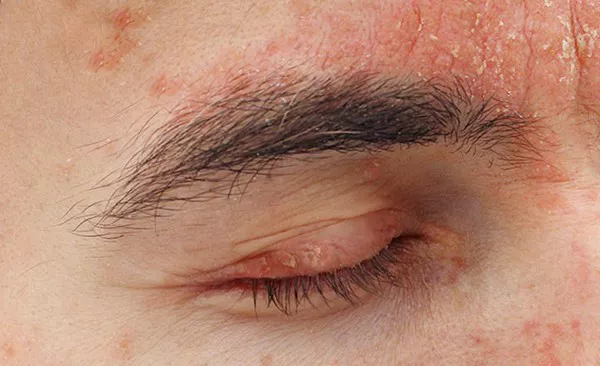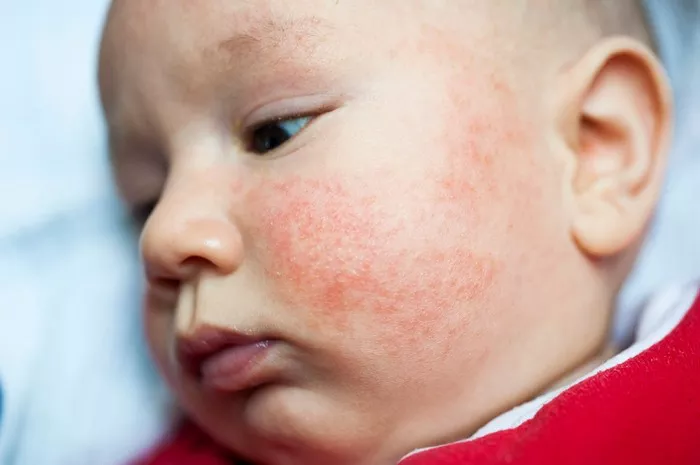Psoriasis is a chronic skin condition that can be particularly challenging to manage, especially when it affects sensitive areas like the skin around the eyes. Finding the right eye cream for psoriasis is crucial for alleviating symptoms and preventing further irritation. This comprehensive guide will help you understand the specific needs of psoriasis-affected skin around the eyes, choose the best products, and use them effectively.
Understanding Psoriasis Around the Eyes
Psoriasis is an autoimmune condition that causes rapid skin cell turnover, leading to the buildup of thick, scaly patches on the skin. While psoriasis commonly affects the elbows, knees, and scalp, it can also appear around the eyes, presenting unique challenges due to the sensitivity of the skin in this area.
SEE ALSO: Does Psoriatic Arthritis Make You Tired?
What is psoriasis on the eyelids?
Psoriasis is a chronic skin condition that affects the skin on your body as a result of an overactive immune system. While rare, the condition can target the skin on your eyelid(s). An outbreak of psoriasis on your eyelids looks like a patch of swollen, itchy, discolored and scaly skin that appears on or around the skin near your eyes. This patch of affected skin is called a plaque.
Who does psoriasis on the eyelids affect?
Psoriasis on the eyelids affects people who have a psoriasis diagnosis. The condition usually doesn’t only affect the skin near your eyes, so you may have symptoms of psoriasis on other parts of your body at the same time.
How common is psoriasis on the eyelids?
Psoriasis on the eyelids and around the eyes is very rare, but psoriasis on the face can occur in people diagnosed with psoriasis. Psoriasis affects millions of people and over 3% of the United States population.
What’s the difference between psoriasis and eczema on the eyelids?
Psoriasis and eczema are both skin conditions that can appear on your eyelid(s). Psoriasis causes a buildup of dead skin cells on your skin that scale and flake. Eczema, also called eyelid dermatitis, is a skin condition that occurs after an irritant or allergen contacts the skin of your eyelid and causes an itchy rash with pain, blistering or a burning sensation. While both conditions can cause symptoms of itchiness, eczema is usually itchier than psoriasis.
Symptoms and Causes
Skin discoloration.
Scales or flaky skin.
Dry skin.
Itchy skin.
Pain or discomfort.
Vision impairment.
Swollen skin.
Symptoms of psoriasis on your eyelids can affect the skin around your eye, on your eyelid and on your eyebrow, and scales can cover your eyelashes. Symptoms can also cause your eyelid to curve up or down.
What causes psoriasis on the eyelids?
A buildup of dead skin cells causes psoriasis on the eyelids. Your immune system helps keep your body healthy by fighting foreign invaders like bacteria. During a psoriasis outbreak, the cells within your immune system target your skin’s healthy cells and speed up cell growth and replication from 30 days to three to four days. This causes dead skin cells to build up on the surface of your skin. Additional symptoms you experience are signs that your cells are overactive, like swelling, skin discoloration and itchiness.
Is psoriasis on the eyelids contagious?
No, psoriasis on your eyelids isn’t contagious. The condition can’t spread from person-to-person contact.
Are there side effects of the treatment for psoriasis on the eyelids?
If you use topical medications to treat psoriasis on your eyelids, follow your provider’s instructions on how often to apply them and where to apply them on your skin. Overuse or improper application of topical medications around or on your eyelid can be dangerous to your eyesight and cause dry eye, cataracts or glaucoma.
How soon after treatment will I feel better?
After you begin treatment, you might feel immediate relief from itchiness or discomfort. Your symptoms may persist for several weeks, even with a medicated treatment. Skin discoloration might take several months to return to your natural skin tone. If your symptoms are affecting your mental health or preventing you from participating in regular activities, contact your provider. Treatment by a healthcare professional can speed up your body’s healing time and improve your confidence.
Prevention
How can I prevent psoriasis on the eyelids?
When you don’t have an outbreak of psoriasis on your eyelids, you can take steps to reduce your risk of a flare-up by:
Using a gentle soap or cleanser daily to wash the skin on your face.
Applying moisturizer to your skin daily or when your skin becomes dry.
Wearing sunscreen when you go out in the sun.
Conclusion
Managing psoriasis around the eyes requires a combination of gentle skincare, the right products, and professional guidance. By understanding the condition, choosing the right eye cream, and following safe application practices, you can effectively alleviate symptoms and protect the delicate skin around your eyes. Remember, consistency and a holistic approach to care are key to managing psoriasis and maintaining healthy skin.
Related Topics:


























